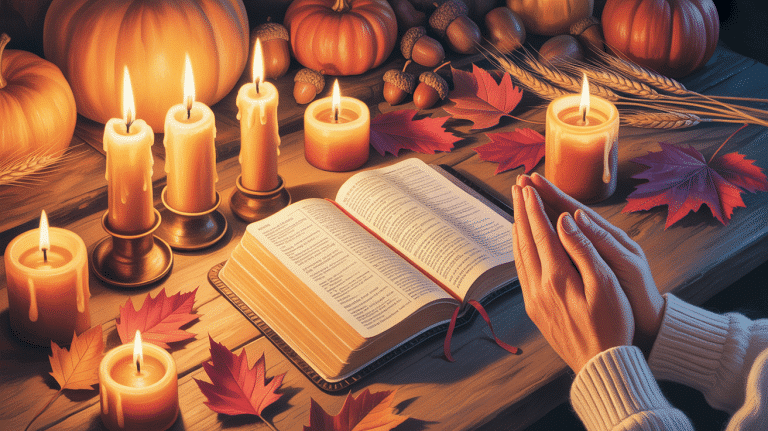Welcome to our collection of Victorian surnames, a window into Britain’s social history from 1837 to 1901. These family names carry stories of occupation, location, and ancestry that help us understand our past.
Victorian surnames weren’t just labels, they were markers of identity, family connections, and social standing during a time of tremendous industrial and social change.
In this guide, we’ll examine what makes Victorian surnames distinctive, their historical context, and how you can use them to find your ancestors.
Have you ever wondered what your surname might reveal about your family’s Victorian roots? Join us as we step back in time to examine these historical family names and what they can tell us about our heritage.
What Are Victorian Surnames?
Victorian surnames are family names used during Queen Victoria’s reign (1837-1901), though most originated centuries earlier.
These names became fixed and hereditary by this era, passing from father to children. The Victorian period brought extensive documentation through census records and civil registration, creating rich research opportunities.
Victorian surnames typically came from:
- Occupations (Cooper, Thatcher)
- Locations (Hill, Brook)
- Physical traits (Short, White)
- Paternal names (Johnson, Wilson)
Social class shaped surname patterns, with working families often having trade-based names while noble families used names tied to ancestral lands or Norman heritage. These names helped maintain social distinctions while providing valuable historical clues.
Popular Aristocratic & Noble Surnames
These surnames were associated with the upper echelons of Victorian society, often linked to landownership, titles, and longstanding family lineages.
1. Archer
Origin: English
Pronunciation: /ˈɑː.tʃər/
Meaning: An occupational surname for a person skilled in using a bow and arrow.
2. Ashdown
Origin: English
Pronunciation: /ˈæʃ.daʊn/
Meaning: Derived from a location with ash trees on a hill or down; means “ash tree hill.”
3. Bennett
Origin: English (from Latin)
Pronunciation: /ˈbɛn.ɪt/
Meaning: Derived from the Latin name Benedictus, meaning “blessed.”
4. Bertram
Origin: Germanic/Norman
Pronunciation: /ˈbɜː.trəm/
Meaning: From Old German Berhtramn, meaning “bright raven.”
5. Cavendish
Origin: English
Pronunciation: /ˈkæv.ən.dɪʃ/
Meaning: From a place name in Suffolk, meaning “Cafa’s enclosed pasture.”
6. Chester
Origin: English (Latin roots)
Pronunciation: /ˈtʃɛs.tər/
Meaning: From Latin castrum, meaning “fortress” or “camp”; used for people from the city of Chester.
7. Clifford
Origin: English
Pronunciation: /ˈklɪf.ərd/
Meaning: From a location meaning “ford near a cliff.”
8. Crawford
Origin: Scottish
Pronunciation: /ˈkrɔː.fərd/
Meaning: Derived from the Old English for “crow ford,” a place where crows gathered near a river crossing.
9. Davenport
Origin: English
Pronunciation: /ˈdæv.ən.pɔːt/
Meaning: From the town of Davenport in Cheshire; meaning “the market town on the trickling stream.”
10. Fairfax
Origin: English
Pronunciation: /ˈfeə.fæks/
Meaning: From Old English fæger (fair) and feax (hair), meaning “fair-haired.”
11. Fitzgerald
Origin: Anglo-Norman (Irish usage)
Pronunciation: /ˌfɪtsˈdʒɛr.əld/
Meaning: “Son of Gerald”; Fitz- from Old French fils, meaning “son,” and Gerald meaning “rule of the spear.”
12. Grantham
Origin: English
Pronunciation: /ˈɡrænθəm/
Meaning: A place name, from Old English grand (gravel) and hām (homestead), meaning “homestead on the gravelly ground.”
13. Harrington
Origin: English
Pronunciation: /ˈhærɪŋtən/
Meaning: A place in Cumbria, meaning “town or settlement of the people of Herera.”
14. Hastings
Origin: English
Pronunciation: /ˈheɪ.stɪŋz/
Meaning: From Old French Hasting, derived from the Old Norse personal name Hásteinn, meaning “high stone.”
15. Hawthorne
Origin: English
Pronunciation: /ˈhɔːθɔːrn/
Meaning: A name of Anglo-Saxon origin, referring to someone who lived near a hawthorn tree or a hawthorn hedge.
16. Innes
Origin: Scottish
Pronunciation: /ˈɪnɪs/
Meaning: Derived from the Gaelic Innis, meaning “island” or “river meadow.”
17. Jarvis
Origin: English
Pronunciation: /ˈdʒɑːvɪs/
Meaning: A medieval name derived from the Old French Gervais, meaning “spear servant.”
18. Kingsley
Origin: English
Pronunciation: /ˈkɪŋzli/
Meaning: Derived from Old English cyng (king) and leah (meadow), meaning “king’s meadow.”
19. Langley
Origin: English
Pronunciation: /ˈlæŋɡli/
Meaning: From Old English lang (long) and leah (meadow), meaning “long meadow.”
20. Montague
Origin: French
Pronunciation: /ˈmɒntɪɡjuː/
Meaning: Derived from Old French mont (mountain) and agu (sharp), meaning “sharp mountain.”
21. Montgomery
Origin: Norman French
Pronunciation: /mɒntˈɡʌməri/
Meaning: From the town of Saint-Germain-de-Montgommery in France, meaning “man power” or “mountain of the brave.”
22. Pembroke
Origin: Welsh
Pronunciation: /ˈpɛmbroʊk/
Meaning: Derived from the Welsh Pen (head or top) and broc (badger), meaning “the hill where badgers live.”
23. Prescott
Origin: English
Pronunciation: /ˈprɛskət/
Meaning: Derived from the Old French Preist (priest) and cot (cottage), meaning “priest’s cottage.”
24. Radcliffe
Origin: English
Pronunciation: /ˈrædklɪf/
Meaning: From Old English rædd (red) and clif (cliff), meaning “red cliff.”
25. Rutherford
Origin: Scottish
Pronunciation: /ˈrʌθərfərd/
Meaning: Derived from the Old Norse rūð (clearing) and fjǫrðr (ford), meaning “ford of the clearing.”
26. Seymour
Origin: English
Pronunciation: /ˈsiːmɔːr/
Meaning: Derived from the Old French Saint-Maur (Saint Maur), referring to a family descended from a saint.
27. Sinclair
Origin: Scottish
Pronunciation: /sɪnˈklɛər/
Meaning: From the French Saint-Clair, meaning “holy light,” often associated with a family from Normandy.
28. Spencer
Origin: English
Pronunciation: /ˈspɛnsər/
Meaning: Household steward
29. Stanhope
Origin: English
Pronunciation: /ˈstæn.həʊp/
Meaning: A place name derived from the Old English stan (stone) and hop (valley), meaning “stone valley.”
30. Wellington
Origin: English
Pronunciation: /ˈwɛlɪŋtən/
Meaning: A place name, from well (spring) and ton (town), meaning “town near the spring.”
31. Wentworth
Origin: English
Pronunciation: /ˈwɛntwɜːθ/
Meaning: Derived from Old English wend (to turn) and worth (enclosure), meaning “enclosure where something turns.”
32. Whitmore
Origin: English
Pronunciation: /ˈwɪtmɔːr/
Meaning: Derived from Old English hwita (white) and mor (moor), meaning “white moor.”
33. Winchester
Origin: English
Pronunciation: /ˈwɪntʃɪstər/
Meaning: From the Roman town of Venta Belgarum, later called Winchester, meaning “town of the Belgae people.”
34. Wyndham
Origin: English
Pronunciation: /ˈwɪndəm/
Meaning: Derived from Old English wynn (joy) and ham (home), meaning “home of joy.”
35. Yorke
Origin: English
Pronunciation: /jɔːk/
Meaning: Derived from the city of York, meaning “from the settlement near the river.”
36. Beaumont
Origin: French
Pronunciation: /ˈboʊmɔːnt/
Meaning: Derived from Old French beau (beautiful) and mont (mountain), meaning “beautiful mountain.”
37. Devereux
Origin: French
Pronunciation: /ˈdɛvərəʊ/
Meaning: From the French place name Évreux, meaning “from Évreux” in Normandy.
38. Fitzroy
Origin: Anglo-Norman
Pronunciation: /ˈfɪtsrɔɪ/
Meaning: Derived from the Norman French Fitz (son of) and Roy (king), meaning “son of the king.”
39. Howard
Origin: English
Pronunciation: /ˈhaʊərd/
Meaning: From Old French huard, meaning “high guardian,” referring to a family in charge of a royal household.
40. Lennox
Origin: Scottish
Pronunciation: /ˈlɛnɒks/
Meaning: Derived from the region of Lennox in Scotland, meaning “bright or shining one.”
41. Neville
Origin: French
Pronunciation: /ˈnɛvɪl/
Meaning: Derived from the French place name Neville, meaning “new village.”
42. Percival
Origin: French (Old French)
Pronunciation: /ˈpɜːrsɪvəl/
Meaning: Derived from Old French Perceval, meaning “piercing the valley” or “valley of the spear.”
43. Plantagenet
Origin: French
Pronunciation: /plænˈtædʒɪnɪt/
Meaning: Derived from the Latin planta genista (a sprig of broom), used by the royal family in England.
44. Roxburgh
Origin: Scottish
Pronunciation: /ˈrɒksbərə/
Meaning: Derived from the town of Roxburgh in Scotland, meaning “fortified hill.”
45. Somerset
Origin: English
Pronunciation: /ˈsʌmərsɛt/
Meaning: Derived from the county of Somerset in England, meaning “the land of the summer people.”
46. Talbot
Origin: French
Pronunciation: /ˈtælbət/
Meaning: Derived from the Old French Talbot, meaning “a type of hunting dog.”
47. Vane
Origin: English
Pronunciation: /veɪn/
Meaning: “A wind vane” or “a vane used to indicate direction.”
48. Villiers
Origin: French
Pronunciation: /ˈvɪljərz/
Meaning: Derived from the French place name Villers, meaning “a village or settlement.”
49. Walpole
Origin: English
Pronunciation: /ˈwɔːlpəʊl/
Meaning: Derived from the village of Walpole in Norfolk, meaning “the pool near the wall.”
50. Yarborough
Origin: English
Pronunciation: /ˈjɑːbərə/
Meaning: Derived from the village of Yarborough in Lincolnshire, meaning “the hill where yew trees grow.”
Occupational Surnames
These surnames were derived from the professions and trades of ancestors. They offer a glimpse into the occupations of the past, often reflecting practical roles in society.
51. Baker
Origin: English
Pronunciation: /ˈbeɪkər/
Meaning: Derived from the occupation of a baker, someone who bakes bread and other baked goods.
52. Barber
Origin: English
Pronunciation: /ˈbɑːrbər/
Meaning: From the Old French barbier, meaning “a person who cuts hair or shaves beards.”
53. Butler
Origin: English
Pronunciation: /ˈbʌtələr/
Meaning: Derived from the Old French butier, meaning “a person in charge of a household’s wine cellar.”
54. Carpenter
Origin: English
Pronunciation: /ˈkɑːrpəntər/
Meaning: Refers to someone who worked as a carpenter, building or repairing wooden structures.
55. Chandler
Origin: English
Pronunciation: /ˈʧændlər/
Meaning: Derived from the occupation of a chandler, a maker or seller of candles.
56. Clark
Origin: English
Pronunciation: /klɑːrk/
Meaning: Refers to a cleric or scholar, originally derived from the Old English clerec, meaning “clerk.”
57. Cooper
Origin: English
Pronunciation: /ˈkuːpər/
Meaning: A cooper was a tradesman who made barrels, casks, and other wooden containers.
58. Draper
Origin: English
Pronunciation: /ˈdreɪpər/
Meaning: A draper was a person who sold cloth and textiles.
59. Fletcher
Origin: English
Pronunciation: /ˈflɛtʃər/
Meaning: Refers to someone who made or sold arrows, derived from the Old French flechier (arrow maker).
60. Gardner
Origin: English
Pronunciation: /ˈɡɑːrdnər/
Meaning: A gardener was someone responsible for cultivating plants and tending gardens.
61. Glover
Origin: English
Pronunciation: /ˈɡlʌvər/
Meaning: Derived from the occupation of a glover, someone who made or sold gloves.
62. Mason
Origin: English
Pronunciation: /ˈmeɪsən/
Meaning: A mason was a skilled worker who built structures from stone or brick.
63. Miller
Origin: English
Pronunciation: /ˈmɪlər/
Meaning: A miller was someone who operated a mill, typically for grinding grain into flour.
64. Porter
Origin: English
Pronunciation: /ˈpɔːrtər/
Meaning: A porter was someone employed to carry luggage or goods, typically in a hotel or transport setting.
65. Potter
Origin: English
Pronunciation: /ˈpɒtər/
Meaning: A potter was a person who made pottery, such as bowls, jugs, and other ceramic items.
66. Sawyer
Origin: English
Pronunciation: /ˈsɔːjər/
Meaning: A sawyer was someone who cut timber using a saw.
67. Shepherd
Origin: English
Pronunciation: /ˈʃɛpərd/
Meaning: A shepherd was someone who tended to sheep, guiding them to pastures and ensuring their safety.
68. Smith
Origin: English
Pronunciation: /smɪθ/
Meaning: Smith refers to a blacksmith, someone who worked with metal, creating tools, weapons, and other items.
69. Tailor
Origin: English
Pronunciation: /ˈteɪlər/
Meaning: A tailor is someone who makes or alters clothing, especially suits.
70. Tanner
Origin: English
Pronunciation: /ˈtænər/
Meaning: A tanner was someone who processed animal hides into leather.
71. Thatcher
Origin: English
Pronunciation: /ˈθætʃər/
Meaning: A thatcher was someone who covered roofs with straw or reeds.
72. Turner
Origin: English
Pronunciation: /ˈtɜːrnər/
Meaning: A turner was a tradesman who worked on a lathe to shape wood, metal, or other materials.
73. Walker
Origin: English
Pronunciation: /ˈwɔːkər/
Meaning: A walker was someone who worked in the textile industry, specifically walking or fulling wool to make it thicker.
74. Webster
Origin: English
Pronunciation: /ˈwɛbstər/
Meaning: A webster was someone who wove cloth, particularly a weaver of woolen fabric.
75. Wheeler
Origin: English
Pronunciation: /ˈwiːlər/
Meaning: A wheeler was someone who made or repaired wheels, such as for carts and wagons.
76. Wright
Origin: English
Pronunciation: /raɪt/
Meaning: A wright was a skilled worker or craftsman, particularly someone who worked with wood or metal.
77. Chapman
Origin: English
Pronunciation: /ˈʧæpmən/
Meaning: A chapman was a merchant or trader, especially one who traveled to sell goods.
78. Collier
Origin: English
Pronunciation: /ˈkɒljər/
Meaning: A collier was someone who worked in a coal mine, or who sold coal.
79. Faulkner
Origin: English
Pronunciation: /ˈfɔːknər/
Meaning: Derived from the Old French fauconier, meaning “falconer,” referring to someone who trained or took care of falcons.
80. Fuller
Origin: English
Pronunciation: /ˈfʊlər/
Meaning: A fuller was a person who cleaned and thickened woolen cloth by beating it.
81. Harper
Origin: English
Pronunciation: /ˈhɑːrpər/
Meaning: Refers to someone who played the harp, or a person involved in the music trade.
82. Hooper
Origin: English
Pronunciation: /ˈhuːpər/
Meaning: A hooper was a craftsman who made hoops for barrels and casks.
83. Mercer
Origin: English
Pronunciation: /ˈmɜːrsər/
Meaning: A mercer was a trader or merchant dealing in imported goods, especially cloth.
84. Parker
Origin: English
Pronunciation: /ˈpɑːrkər/
Meaning: A parker was originally someone who took care of a park, particularly one used for hunting.
85. Reeve
Origin: English
Pronunciation: /riːv/
Meaning: A reeve was an official or steward who oversaw the management of land or property.
86. Saddler
Origin: English
Pronunciation: /ˈsædlər/
Meaning: A saddler was a person who made or repaired saddles.
87. Scrivener
Origin: English
Pronunciation: /ˈskrɪvənər/
Meaning: A scrivener was a clerk or a scribe, someone who copied documents or kept records.
88. Summers
Origin: English
Pronunciation: /ˈsʌmərz/
Meaning: Refers to someone who worked with summer-related activities, or it could refer to a family name linked to the warmer seasons.
89. Tinker
Origin: English
Pronunciation: /ˈtɪŋkər/
Meaning: A tinker was a person who mended pots and pans, usually as a traveling repairman.
90. Vintner
Origin: English
Pronunciation: /ˈvɪntnər/
Meaning: A vintner was someone involved in the production or sale of wine.
91. Wainwright
Origin: English
Pronunciation: /ˈweɪnˌraɪt/
Meaning: A wainwright was a person who built or repaired wagons or carts.
92. Woodman
Origin: English
Pronunciation: /ˈwʊdmən/
Meaning: A woodman was a person who worked in or managed a forest.
93. Yeoman
Origin: English
Pronunciation: /ˈjoʊmən/
Meaning: A yeoman was a farmer or small landowner, often holding a position of freeholding or service in a military context.
94. Baxter
Origin: English
Pronunciation: /ˈbækstər/
Meaning: A baxter was a baker, someone who made and sold bread.
95. Chamberlain
Origin: English
Pronunciation: /ˈʧeɪmbərlɪn/
Meaning: A chamberlain was an officer in charge of managing the household or estate of a nobleman or monarch.
96. Dyer
Origin: English
Pronunciation: /ˈdaɪər/
Meaning: A dyer was someone who dyed fabrics and textiles.
97. Engle
Origin: German
Pronunciation: /ˈɪŋɡəl/
Meaning: Derived from the German Engel, meaning “angel” or “messenger,” indicating a person with a peaceful nature.
98. Forester
Origin: English
Pronunciation: /ˈfɔːrɪstər/
Meaning: A forester was someone who worked in or managed a forest, often in charge of its upkeep and the hunting grounds.
Geographical & Topographical Surnames
These surnames are derived from locations, landscapes, or geographical features, often indicating where a family lived or the natural features around them.
99. Ashford
Origin: English
Pronunciation: /ˈæʃfərd/
Meaning: From Ashford in Kent, meaning “the ford near the ash tree.”
100. Atwood
Origin: English
Pronunciation: /ˈætˌwʊd/
Meaning: Refers to someone who lived near a wooded area, from Old English at wudu meaning “at the wood.”
101. Beckett
Origin: English
Pronunciation: /ˈbɛkɪt/
Meaning: Derived from the Old English bece meaning “stream,” Beckett could refer to someone living near a stream or brook.
102. Bradford
Origin: English
Pronunciation: /ˈbrædfərd/
Meaning: From Bradford, meaning “broad ford” or “wide river crossing.”
103. Brook
Origin: English
Pronunciation: /brʊk/
Meaning: Refers to someone who lived near a brook or small stream.
104. Burton
Origin: English
Pronunciation: /ˈbɜːrtən/
Meaning: From the Old English burh meaning “fortified town,” indicating someone from a town or settlement.
105. Camden
Origin: English
Pronunciation: /ˈkæmdən/
Meaning: Derived from Camden, meaning “valley of the camp.”
106. Carlisle
Origin: English
Pronunciation: /ˈkɑːrlaɪl/
Meaning: Derived from the city of Carlisle, meaning “fortress of Luel” from the Old Welsh name Caer Luel.
107. Clifton
Origin: English
Pronunciation: /ˈklɪftən/
Meaning: From the Old English clif meaning “cliff,” referring to someone who lived near a cliff or steep hill.
108. Crawley
Origin: English
Pronunciation: /ˈkrɔːli/
Meaning: From the town of Crawley, meaning “crow’s meadow” or “meadow frequented by crows.”
109. Darlington
Origin: English
Pronunciation: /ˈdɑːrlɪŋtən/
Meaning: Derived from Darlington in County Durham, meaning “the town of Deorling’s people.”
110. Dover
Origin: English
Pronunciation: /ˈdoʊvər/
Meaning: From the town of Dover, meaning “the waters” or “waterway.”
111. Eaton
Origin: English
Pronunciation: /ˈiːtən/
Meaning: From the Old English ēa meaning “river” and tūn meaning “town,” indicating someone from a river town.
112. Ellington
Origin: English
Pronunciation: /ˈɛlɪŋtən/
Meaning: Derived from a place name meaning “the settlement of Ella’s people.”
113. Fairfield
Origin: English
Pronunciation: /ˈfɛəˌfɪɛld/
Meaning: “Fair field,” referring to someone who lived near a pleasant, open field.
114. Greenwood
Origin: English
Pronunciation: /ˈɡriːnˌwʊd/
Meaning: Someone who lived near a green wood or forest.
115. Hamilton
Origin: Scottish
Pronunciation: /ˈhæmɪltən/
Meaning: Derived from the town of Hamilton, Scotland, meaning “homestead in the flat area.”
116. Hills
Origin: English
Pronunciation: /hɪlz/
Meaning: A topographical surname referring to someone who lived near or on a hill.
117. Holloway
Origin: English
Pronunciation: /ˈhɒləweɪ/
Meaning: Referring to someone who lived near a hollow way, or a sunken path.
118. Holmes
Origin: English
Pronunciation: /hoʊlmz/
Meaning: Refers to someone who lived by a small island or a raised area in a marsh.
119. Hudson
Origin: English
Pronunciation: /ˈhʌdsən/
Meaning: A patronymic surname meaning “son of Hudde,” with Hudde being a diminutive of the Old English personal name Hugh.
120. Inglewood
Origin: English
Pronunciation: /ˈɪŋɡəlwʊd/
Meaning: “Wood of the Angles,” referring to someone who lived near a wood inhabited by the Angles.
121. Kensington
Origin: English
Pronunciation: /ˈkɛnsɪŋtən/
Meaning: Derived from the area of Kensington in London, meaning “the king’s town.”
122. Langford
Origin: Old English
Pronunciation: /ˈlæŋkfərd/
Meaning: “Long ford,” referring to a river crossing.
123. Larkspur
Origin: English
Pronunciation: /ˈlɑːrkspɜːr/
Meaning: Derived from the flower, Larkspur, and could refer to someone who lived near these flowers or a person associated with them.
124. Lockwood
Origin: English
Pronunciation: /ˈlɒkwʊd/
Meaning: Referring to someone who lived near a wooded area with a lock (gate) or a locked forest.
125. Mansfield
Origin: Old English
Pronunciation: /ˈmænsfiːld/
Meaning: Referring to a field owned or cultivated by a man.
126. Mapleton
Origin: English
Pronunciation: /ˈmeɪplɪtən/
Meaning: Derived from a place name, referring to a town or area where maple trees grew.
127. Milton
Origin: English
Pronunciation: /ˈmɪltən/
Meaning: Derived from the Old English mylen meaning “mill,” indicating someone who lived near a mill.
128. Norwood
Origin: English
Pronunciation: /ˈnɔːrwʊd/
Meaning: Referring to someone who lived near a northern wood or forest.
129. Oakley
Origin: English
Pronunciation: /ˈoʊkli/
Meaning: Derived from “oak” and “ley” (meadow), meaning “oak meadow.”
130. Penrose
Origin: English
Pronunciation: /ˈpɛnroʊz/
Meaning: From Cornwall, meaning “head of the heath” or “promontory.”
131. Perry
Origin: English
Pronunciation: /ˈpɛri/
Meaning: “Pear tree,” indicating someone who lived near or worked with pear trees.
132. Radford
Origin: English
Pronunciation: /ˈrædfərd/
Meaning: “Red ford,” referring to a river crossing with reddish-colored soil.
133. Ravenscroft
Origin: English
Pronunciation: /ˈrævənzˌkrɒft/
Meaning: Derived from a place name, meaning “ravens’ croft,” referring to a small, enclosed field where ravens lived.
134. Redgrave
Origin: English
Pronunciation: /ˈrɛdɡreɪv/
Meaning: “Red gravel,” referring to a place with reddish gravel or soil.
135. Ridley
Origin: English
Pronunciation: /ˈrɪdli/
Meaning: Derived from a place name meaning “reed meadow.”
136. Rowley
Origin: English
Pronunciation: /ˈroʊli/
Meaning: From a place name, meaning “rough clearing in a wood.”
137. Rushmere
Origin: Old English
Pronunciation: /ˈrʌʃmɪər/
Meaning: “Rush swamp,” indicating a wetland area where rushes grew.
138. Somerton
Origin: English
Pronunciation: /ˈsʌmərtən/
Meaning: “Summer town,” referring to a settlement associated with the warmer months.
139. Stratford
Origin: English
Pronunciation: /ˈstrætˌfɔːrd/
Meaning: “Street ford,” referring to a river crossing near a Roman road.
140. Sutton
Origin: English
Pronunciation: /ˈsʌtən/
Meaning: “South town,” referring to a town located to the south.
141. Templeton
Origin: English
Pronunciation: /ˈtɛmpəltən/
Meaning: “Town of the temple,” likely referring to a place connected to a temple or religious site.
142. Thornhill
Origin: English
Pronunciation: /ˈθɔːnˌhɪl/
Meaning: “Hill of thorns,” indicating someone who lived near a hill or area covered with thorn bushes.
143. Thorpe
Origin: English
Pronunciation: /θɔːrp/
Meaning: “Village” or “settlement,” referring to a small village or hamlet.
144. Trentham
Origin: English
Pronunciation: /ˈtrɛntəm/
Meaning: Derived from the Trent River, meaning “the homestead near the Trent.”
145. Twyford
Origin: English
Pronunciation: /ˈtwaɪfərd/
Meaning: “Two fords,” referring to a settlement located near two river crossings.
146. Uxbridge
Origin: English
Pronunciation: /ˈʌksbrɪdʒ/
Meaning: From the town of Uxbridge, meaning “the bridge over the Ux,” derived from the river name.
147. Waverley
Origin: English
Pronunciation: /ˈweɪvərli/
Meaning: A surname from the famous Waverley novels by Sir Walter Scott, meaning “meadow of the quaking aspens.”
148. Weston
Origin: English
Pronunciation: /ˈwɛstən/
Meaning: “West town,” referring to a settlement located to the west.
149. Whitaker
Origin: English
Pronunciation: /ˈwɪtəkər/
Meaning: “White field” or “white meadow,” indicating a pale or open area.
150. Whitley
Origin: English
Pronunciation: /ˈwɪtli/
Meaning: “White meadow” or “clearing in the woods.”
151. Winfield
Origin: English
Pronunciation: /ˈwɪnfiːld/
Meaning: “Meadow of victory,” referring to a pleasant or victorious meadow.
152. Witherspoon
Origin: Scottish
Pronunciation: /ˈwɪðərspuːn/
Meaning: “The spoon of the stream,” derived from a small stream or brook.
153. Woodley
Origin: English
Pronunciation: /ˈwʊdli/
Meaning: Derived from “wood” and “ley,” meaning “wooded meadow.”
154. York
Origin: English
Pronunciation: /jɔːrk/
Meaning: Referring to someone from the city of York in England.
Nature-Inspired Surnames
These family names draw from the natural world around us, often indicating where families lived or the natural features that surrounded them during the Victorian era.
155. Ashby
Origin: English
Pronunciation: /ˈæʃbi/
Meaning: Derived from a place name, meaning “ash tree farm.”
156. Birch
Origin: English
Pronunciation: /bɜːrtʃ/
Meaning: Refers to someone who lived near a birch tree or a person associated with the birch tree.
157. Briar
Origin: English
Pronunciation: /ˈbraɪər/
Meaning: Refers to a thorny plant or bush, indicating someone who lived near such a plant.
158. Brookfield
Origin: English
Pronunciation: /ˈbrʊkfiːld/
Meaning: “Field by the brook” or “stream.”
159. Cedar
Origin: English
Pronunciation: /ˈsiːdər/
Meaning: Refers to someone who lived near cedar trees or worked with cedar wood.
160. Cherry
Origin: English
Pronunciation: /ˈʧɛri/
Meaning: Refers to someone who lived near a cherry tree or a person associated with it.
161. Clover
Origin: English
Pronunciation: /ˈkloʊvər/
Meaning: Derived from the clover plant, often symbolizing luck.
162. Dale
Origin: English
Pronunciation: /deɪl/
Meaning: Refers to a person who lived in a valley, derived from Old English dæl meaning “valley.”
163. Elder
Origin: English
Pronunciation: /ˈɛldər/
Meaning: Refers to someone associated with the elder tree, or an elder person.
164. Elmhurst
Origin: English
Pronunciation: /ˈɛlmˌhɜːrst/
Meaning: Elm forest.
165. Fern
Origin: English
Pronunciation: /fɜrn/
Meaning: Refers to someone who lived near ferns or was associated with the fern plant.
166. Fielding
Origin: English
Pronunciation: /ˈfiːldɪŋ/
Meaning: “One who lives in the field.”
167. Flint
Origin: English
Pronunciation: /flɪnt/
Meaning: Referring to someone who lived near a flint quarry or used flint tools.
168. Foxglove
Origin: English
Pronunciation: /ˈfɒksɡlʌv/
Meaning: Referring to someone associated with the foxglove plant.
169. Garland
Origin: English
Pronunciation: /ˈɡɑːrlənd/
Meaning: “Wreath” or “garland,” often denoting someone who made or wore garlands.
170. Glenmore
Origin: Scottish
Pronunciation: /ˈɡlɛnˌmɔːr/
Meaning: Valley or glen.
171. Greenleaf
Origin: English
Pronunciation: /ˈɡriːnˌliːf/
Meaning: Referring to someone associated with green leaves or a lush, leafy area.
172. Grove
Origin: English
Pronunciation: /ɡroʊv/
Meaning: Referring to someone who lived near a grove or small wood.
173. Hawke
Origin: English
Pronunciation: /hɔːk/
Meaning: Refers to someone who worked with or was associated with hawks, a falconer or a person who lived near an area where hawks were found.
174. Hazelton
Origin: English
Pronunciation: /ˈheɪzəltn/
Meaning: Referring to someone who lived near a hazel tree or a settlement associated with hazel trees.
175. Heath
Origin: English
Pronunciation: /hiːθ/
Meaning: Refers to someone who lived on a heath or open, uncultivated land.
176. Holly
Origin: English
Pronunciation: /ˈhɒli/
Meaning: Refers to someone who lived near a holly tree, or was associated with it.
177. Ivy
Origin: English
Pronunciation: /ˈaɪvi/
Meaning: Referring to someone who lived near ivy or had an association with it.
178. Lakewood
Origin: English
Pronunciation: /ˈleɪkˌwʊd/
Meaning: Referring to someone from a wooded area near a lake.
179. Laurel
Origin: English
Pronunciation: /ˈlɔːrəl/
Meaning: Refers to someone associated with laurel trees or a place with a laurel presence.
180. Linden
Origin: English
Pronunciation: /ˈlɪndən/
Meaning: Referring to someone who lived near linden trees.
181. Maple
Origin: English
Pronunciation: /ˈmeɪpl/
Meaning: Refers to someone who lived near a maple tree or was associated with it.
182. Marsh
Origin: English
Pronunciation: /mɑːrʃ/
Meaning: Refers to someone who lived near a marsh or swampy area.
183. Meadowes
Origin: English
Pronunciation: /ˈmɛdəʊz/
Meaning: Refers to someone who lived in or near a meadow.
184. Moss
Origin: English
Pronunciation: /mɒs/
Meaning: Refers to someone who lived near mossy land or a place covered with moss.
185. Oakman
Origin: English
Pronunciation: /ˈoʊkmən/
Meaning: Referring to someone who lived near or worked with oak trees.
186. Peach
Origin: English
Pronunciation: /piːʧ/
Meaning: Refers to someone who lived near peach trees or was associated with them.
187. Pine
Origin: English
Pronunciation: /paɪn/
Meaning: Refers to someone who lived near pine trees or was associated with them.
188. Rainford
Origin: English
Pronunciation: /ˈreɪnˌfɔːrd/
Meaning: Derived from “rain” (a water course) and “ford” (a shallow crossing in a river).
189. Reed
Origin: English
Pronunciation: /riːd/
Meaning: Refers to someone who lived near a reed bed or a person with a reed-like appearance.
190. Ridgeway
Origin: English
Pronunciation: /ˈrɪdʒweɪ/
Meaning: Derived from a ridge or pathway along a hilltop.
191. Rosewood
Origin: English
Pronunciation: /ˈroʊzwʊd/
Meaning: Refers to someone who lived near or worked with rosewood trees.
192. Rowan
Origin: Irish
Pronunciation: /ˈroʊən/
Meaning: Refers to someone who lived near a rowan tree or had an association with it.
193. Snowdon
Origin: Welsh
Pronunciation: /ˈsnəʊdən/
Meaning: Referring to someone from Snowdon, the highest mountain in Wales.
194. Thistle
Origin: Scottish
Pronunciation: /ˈθɪsəl/
Meaning: Refers to someone associated with or living near thistle plants, the national flower of Scotland.
195. Torrence
Origin: Scottish
Pronunciation: /ˈtɔːrəns/
Meaning: Derived from the word “torr,” meaning a high rock or peak.
196. Underwood
Origin: English
Pronunciation: /ˈʌndərwʊd/
Meaning: Refers to someone who lived under or near a wood or forest.
197. Vale
Origin: English
Pronunciation: /veɪl/
Meaning: Referring to someone who lived in a valley.
198. Walnut
Origin: English
Pronunciation: /ˈwɔːlnʌt/
Meaning: Refers to someone who lived near walnut trees or was associated with them.
199. Willow
Origin: English
Pronunciation: /ˈwɪloʊ/
Meaning: Refers to someone who lived near willow trees or was associated with them.
200. Winterbourne
Origin: English
Pronunciation: /ˈwɪntərˌbɔːrn/
Meaning: Referring to someone from a place called Winterbourne.
201. Wolfe
Origin: English
Pronunciation: /wʊlf/
Meaning: Refers to a person who was fierce or strong like a wolf.
202. Wren
Origin: English
Pronunciation: /rɛn/
Meaning: Refers to someone who lived near or was associated with the wren bird.
203. Yew
Origin: English
Pronunciation: /juː/
Meaning: Refers to someone who lived near a yew tree, often associated with old or sacred groves.
204. Stonebridge
Origin: English
Pronunciation: /ˈstəʊnbrɪdʒ/
Meaning: Referring to someone who lived near a stone bridge.
Literary & Poetic Surnames
These names have connections to writers and literary traditions throughout the Victorian period, some belonging to notable authors themselves while others gained prominence through their association with books and poetry.
205. Austen
Origin: English
Pronunciation: /ˈɔːstən/
Meaning: A surname of literary fame, famously associated with Jane Austen, the renowned novelist.
206. Browning
Origin: English
Pronunciation: /ˈbraʊnɪŋ/
Meaning: Derived from the old word “brown,” referring to someone with brown hair or complexion.
207. Bronte
Origin: English
Pronunciation: /ˈbrɒnti/
Meaning: Famously associated with the Brontë sisters, Charlotte, Emily, and Anne, who were prominent writers.
208. Byron
Origin: English
Pronunciation: /ˈbaɪrən/
Meaning: Famously associated with Lord Byron, the renowned poet.
209. Chaucer
Origin: English
Pronunciation: /ˈtʃɔːsər/
Meaning: Famous by Geoffrey Chaucer, the author of The Canterbury Tales.
210. Coleridge
Origin: English
Pronunciation: /ˈkəʊlərɪdʒ/
Meaning: Associated with Samuel Taylor Coleridge, a major poet of the Romantic era.
211. Wilde
Origin: Irish
Pronunciation: /waɪld/
Meaning: Derived from the word “wild,” referring to a person with a free-spirited or untamed nature. Most notably associated with the writer Oscar Wilde.
212. Whitman
Origin: English
Pronunciation: /ˈwɪtmən/
Meaning: Derived from the words “white” and “man,” describing a person with fair skin or someone from a settlement with a name reflecting “white.”
213. Wordsworth
Origin: English
Pronunciation: /ˈwɜːrdzwɜːrθ/
Meaning: Most famously linked to the poet William Wordsworth, who derived his name from his family’s connection to a place of worth or land.
214. Yeats
Origin: Irish
Pronunciation: /jeɪts/
Meaning: Associated with the poet W.B. Yeats, deriving from a form of the word “gate” or “gatekeeper.”
215. Burns
Origin: Scottish
Pronunciation: /bɜːrnz/
Meaning: Derived from the word “burn,” meaning a stream or brook, referring to a person who lived near a stream or brook.
216. Shelley
Origin: English
Pronunciation: /ˈʃɛli/
Meaning: Derived from Old French, referring to someone from a clearing in the woods or a place with a shell or pebble-covered ground.
217. Crabbe
Origin: English
Pronunciation: /kræb/
Meaning: Likely derived from the word “crab,” referring to a person associated with the crab, referring to a crabby or difficult person.
218. Marlowe
Origin: English
Pronunciation: /ˈmɑːləʊ/
Meaning: Derived from the Old English words for “mere” (lake) and “low” (hill), meaning someone who lived by a lake or lowland area.
Religious & Virtue-Based Surnames
These names reflect spiritual connections or moral qualities valued in Victorian society, often originating from church positions, biblical references, or desirable character traits.
219. Abbott
Origin: English
Pronunciation: /ˈæbət/
Meaning: Derived from the Old French word for “abbot,” meaning a leader of a monastery, or someone associated with the abbey.
220. Angel
Origin: English
Pronunciation: /ˈeɪndʒəl/
Meaning: Refers to a person who had a spiritual or angelic presence, or someone who played a role in religious duties.
221. Bishop
Origin: English
Pronunciation: /ˈbɪʃəp/
Meaning: Derived from the word “bishop,” a high-ranking clergyman, referring to someone who had a religious or ecclesiastical role.
222. Chapel
Origin: English
Pronunciation: /ˈʧæpəl/
Meaning: Refers to someone who lived near a chapel or was associated with the maintenance or guardianship of a chapel.
223. Christian
Origin: English
Pronunciation: /ˈkrɪsʧən/
Meaning: A follower of Christ or someone who adhered to Christian beliefs.
224. Churchill
Origin: English
Pronunciation: /ˈtʃɜːtʃɪl/
Meaning: Derived from a place name, likely referring to someone who lived near a church on a hill.
225. Clergy
Origin: English
Pronunciation: /ˈklɜːdʒi/
Meaning: Refers to someone who was a member of the clergy or had an ecclesiastical role.
226. Faith
Origin: English
Pronunciation: /feɪθ/
Meaning: Derived from the word “faith,” referring to a person known for their religious or virtuous faith.
227. Firth
Origin: Scottish
Pronunciation: /fɜːrθ/
Meaning: Referring to a person who lived near a firth, a term for a coastal inlet.
228. Friar
Origin: English
Pronunciation: /ˈfraɪər/
Meaning: Refers to a member of a religious order, typically a Franciscan monk.
229. Grace
Origin: English
Pronunciation: /ɡreɪs/
Meaning: Derived from the word “grace,” signifying a person known for their elegance, kindness, or religious grace.
230. Hale
Origin: English
Pronunciation: /heɪl/
Meaning: Refers to someone who was healthy, strong, or lived in a place with a healing spring or well.
231. Hope
Origin: English
Pronunciation: /hoʊp/
Meaning: Refers to someone who was hopeful or associated with the quality of hope.
232. Joyce
Origin: English
Pronunciation: /ʤɔɪs/
Meaning: Derived from the Old French “joie” (joy), indicating a person known for their cheerful or joyous nature.
233. Mercy
Origin: English
Pronunciation: /ˈmɜːrsi/
Meaning: Referring to someone known for their merciful or compassionate nature.
234. Monk
Origin: English
Pronunciation: /mʌŋk/
Meaning: Referring to a person who was a monk or lived near a monastery.
235. Parson
Origin: English
Pronunciation: /ˈpɑːrsən/
Meaning: Refers to a clergyman, typically the priest of a parish.
236. Paxman
Origin: English
Pronunciation: /ˈpæksmən/
Meaning: Derived from “pax” (peace), signifying a person who brought peace or lived in a peaceful place.
237. Peace
Origin: English
Pronunciation: /piːs/
Meaning: Representing a person known for peacefulness or associated with peace.
238. Piety
Origin: English
Pronunciation: /ˈpaɪəti/
Meaning: Refers to someone known for their devoutness or religious virtue.
239. Preacher
Origin: English
Pronunciation: /ˈpriːtʃər/
Meaning: Refers to someone who preached or had a preaching role, likely a clergyman.
240. Priestley
Origin: English
Pronunciation: /ˈpriːstli/
Meaning: Derived from “priest” and “ley” (meadow), signifying someone who lived near a priest’s meadow or was associated with the priesthood.
241. Psalter
Origin: English
Pronunciation: /ˈsɔːltər/
Meaning: Refers to a person who was associated with psalms or psalm singing, or who had a psalter (a book of psalms).
242. Rede
Origin: English
Pronunciation: /riːd/
Meaning: Refers to someone who gave advice or counsel, as “rede” means to counsel or advise.
243. Reverence
Origin: English
Pronunciation: /ˈrɛvərəns/
Meaning: Signifying a person known for their reverent or respectful nature.
244. Saint
Origin: English
Pronunciation: /seɪnt/
Meaning: Referring to someone who was considered holy or virtuous.
245. Truelove
Origin: English
Pronunciation: /ˈtruːlʌv/
Meaning: Indicating a person known for their genuine or sincere love.
246. Virtue
Origin: English
Pronunciation: /ˈvɜːtjuː/
Meaning: Refers to someone with virtuous qualities, known for their moral excellence.
247. Wrightson
Origin: English
Pronunciation: /ˈraɪtsən/
Meaning: A combination of “wright” (a worker or maker) and “son,” indicating a craftsman’s son.
248. Charity
Origin: English
Pronunciation: /ˈʧærɪti/
Meaning: Someone known for their charitable nature.
249. Blessing
Origin: English
Pronunciation: /ˈblɛsɪŋ/
Meaning: Refers to a person associated with blessings or considered a blessing.
250. Temperance
Origin: English
Pronunciation: /ˈtɛmpərəns/
Meaning: Referring to a person known for their self-control or moderation.
251. Purity
Origin: English
Pronunciation: /ˈpjʊərɪti/
Meaning: Someone with pure or innocent qualities.
252. Devout
Origin: English
Pronunciation: /dɪˈvaʊt/
Meaning: Refers to someone known for their religious devotion.
253. Heaven
Origin: English
Pronunciation: /ˈhɛvən/
Meaning: Signifying a person who lived near a place named Heaven or had a heavenly disposition.
254. Crosswell
Origin: English
Pronunciation: /ˈkrɒsˌwɛl/
Meaning: Refers to a person living near a crossroads or well, or symbolizing religious faith.
255. Bible
Origin: English
Pronunciation: /ˈbaɪbl/
Meaning: Likely referring to someone associated with the Bible or a church official.
256. Godwin
Origin: English
Pronunciation: /ˈɡɒdwɪn/
Meaning: Derived from “god” and “win,” meaning God’s friend or someone blessed by God.
Military & Heroic Surnames
These names have roots in military service or courageous acts, highlighting the importance placed on valor and defense in Victorian society and often indicating ancestral roles in conflicts or armed forces.
257. Armstrong
Origin: Scottish
Pronunciation: /ˈɑːmstrɔːŋ/
Meaning: Refers to a person with strong arms, often a warrior or hero.
258. Banner
Origin: English
Pronunciation: /ˈbænər/
Meaning: Signifying someone who carried or protected a banner, often in battle.
259. Barrett
Origin: Irish
Pronunciation: /ˈbærət/
Meaning: Derived from the Old French “barat,” meaning a quarrel or contest.
260. Battle
Origin: English
Pronunciation: /ˈbætəl/
Meaning: Referring to someone associated with battles, either as a warrior or a survivor.
261. Blakeley
Origin: English
Pronunciation: /ˈbleɪkli/
Meaning: Referring to a person from a place named Blakeley or related to the Old English word “blac,” meaning dark.
262. Blount
Origin: English
Pronunciation: /blaʊnt/
Meaning: Likely referring to someone with a blunt or straightforward manner, or a reference to a place name.
263. Bolden
Origin: English
Pronunciation: /ˈboʊldən/
Meaning: Refers to someone who was bold or brave.
264. Brassington
Origin: English
Pronunciation: /ˈbræsɪŋtən/
Meaning: L srom a place name, signifying someone from Brassington.
265. Buckler
Origin: English
Pronunciation: /ˈbʌklər/
Meaning: Refers to someone who carried a buckler, a small shield used in battle.
266. Cannon
Origin: English
Pronunciation: /ˈkænən/
Meaning: Refers to a person who worked with cannons or was a member of the artillery.
267. Claymore
Origin: Scottish
Pronunciation: /ˈkleɪmɔːr/
Meaning: Refers to a large sword, signifying someone who wielded such a weapon or worked as a soldier.
268. Conquest
Origin: English
Pronunciation: /ˈkɒnkwɛst/
Meaning: Refers to a person who participated in or was associated with a conquest, particularly in battle.
269. Courtney
Origin: French
Pronunciation: /ˈkɔːtni/
Meaning: Derived from a French place name, associated with noble warriors or knights.
270. Darby
Origin: Irish
Pronunciation: /ˈdɑːrbi/
Meaning: Likely from the Old Norse name “Darby,” associated with a battle or warrior.
271. Drake
Origin: English
Pronunciation: /dreɪk/
Meaning: Refers to a man who was a dragon or a warrior, or associated with the mythical dragon.
272. Falkner
Origin: English
Pronunciation: /ˈfɔːknər/
Meaning: Refers to someone who worked as a falconer, handling birds of prey in noble settings.
273. Forrester
Origin: English
Pronunciation: /ˈfɔːrɪstər/
Meaning: Refers to someone who worked in the forest or was a keeper of the forest.
274. Gage
Origin: English
Pronunciation: /ɡeɪdʒ/
Meaning: Refers to a person who gave or took a pledge, often a symbolic or heroic gesture.
275. Garrick
Origin: English
Pronunciation: /ˈɡærɪk/
Meaning: Likely referring to a person with a warrior-like name or one associated with battle and strength.
276. Halberd
Origin: English
Pronunciation: /ˈhɑːlbɜːrd/
Meaning: Refers to someone who wielded a halberd, a weapon combining an axe and spear.
277. Harcourt
Origin: French
Pronunciation: /ˈhɑːrkɔːrt/
Meaning: Refers to a person from a place named Harcourt, associated with noble lineage.
278. Hawksmoor
Origin: English
Pronunciation: /ˈhɔːksmʊər/
Meaning: Likely refers to a person from a place named Hawksmoor, or associated with hawking.
279. Knighton
Origin: English
Pronunciation: /ˈnaɪtən/
Meaning: Derived from Old English, meaning “town of the knights” or a settlement associated with knights.
280. Lanceford
Origin: English
Pronunciation: /ˈlænsfɔːrd/
Meaning: Likely derived from a place name, meaning “ford of the lance” (a weapon used in battle).
281. Marchmont
Origin: Scottish
Pronunciation: /ˈmɑːrtʃmɒnt/
Meaning: Refers to someone from a place near the border or march (frontier land).
282. Milford
Origin: English
Pronunciation: /ˈmɪlfɔːrd/
Meaning: Refers to someone from a mill by the ford (shallow crossing in a river).
283. Ransome
Origin: English
Pronunciation: /ˈrænsəm/
Meaning: Refers to a person who was involved in paying ransom or derived from the word “ransom.”
284. Seyton
Origin: English
Pronunciation: /ˈseɪtən/
Meaning: Likely derived from a place name, meaning “settlement by the willow trees.”
285. Trueman
Origin: English
Pronunciation: /ˈtruːmən/
Meaning: Refers to a man who is honest or truthful, derived from the word “true.”
286. Shieldwright
Origin: English
Pronunciation: /ˈʃiːldraɪt/
Meaning: Craftsman who made shields for combat.
287. Strongbow
Origin: English
Pronunciation: /ˈstrɒŋboʊ/
Meaning: Nickname for an archer with exceptional strength or accuracy.
288. Warbeck
Origin: English
Pronunciation: /ˈwɔːrbɛk/
Meaning: Refers to a “battle stream” or fighter near a stream.
289. Ironsides
Origin: English
Pronunciation: /ˈaɪənsaɪdz/
Meaning: Nickname for someone with great strength or endurance in battle.
290. Spearman
Origin: English
Pronunciation: /ˈspɪərmən/
Meaning: Someone who carried or made spears.
291. Bowman
Origin: English
Pronunciation: /ˈboʊmən/
Meaning: Refers to an archer or bow-maker.
292. Challenger
Origin: English
Pronunciation: /ˈtʃælɪndʒər/
Meaning: Describes someone who issued challenges in tournaments or battle.
293. Leadbetter
Origin: English
Pronunciation: /ˈlɛdbɛtər/
Meaning: May refer to a lead worker or superior fighter.
294. Musketter
Origin: English
Pronunciation: /mʌsˈkɛtər/
Meaning: Occupational name for a user or maker of muskets.
295. Guardsman
Origin: English
Pronunciation: /ˈɡɑːrdzmən/
Meaning: Someone who served as a guard, especially for nobility.
296. Crusader
Origin: English
Pronunciation: /kruːˈseɪdər/
Meaning: Someone who participated in the Crusades.
297. Vanguard
Origin: English
Pronunciation: /ˈvænɡɑːrd/
Meaning: Refers to one who fought at the front of an army.
298. Sentinel
Origin: English
Pronunciation: /ˈsɛntɪnəl/
Meaning: Describes a military guard or watchman.
299. Marcher
Origin: English
Pronunciation: /ˈmɑːrtʃər/
Meaning: Defender or inhabitant of a border region.
300. Swordsmith
Origin: English
Pronunciation: /ˈsɔːrdsmɪθ/
Meaning: Sword maker.
301. Battleford
Origin: English
Pronunciation: /ˈbætəlfɔːrd/
Meaning: Battle-site river crossing.
302. Pike
Origin: English
Pronunciation: /paɪk/
Meaning: Someone who carried or manufactured pike weapons.
303. Garrison
Origin: English
Pronunciation: /ˈɡærɪsən/
Meaning: Refers to someone who lived in or commanded a military fort.
304. Trooper
Origin: English
Pronunciation: /ˈtruːpər/
Meaning: Soldier, especially one in a cavalry unit.
305. Marshall
Origin: English
Pronunciation: /ˈmɑːrʃəl/
Meaning: Originally a caretaker of horses, later a military officer.
306. Victors
Origin: English
Pronunciation: /ˈvɪktərz/
Meaning: Derived from “victory,” given to successful warriors.
307. Pennant
Origin: Welsh
Pronunciation: /ˈpɛnənt/
Meaning: One who carried the military standard in battle.
308. Helmsley
Origin: English
Pronunciation: /ˈhɛlmzli/
Meaning: “Meadow of the helmets.”
309. Stronghold
Origin: English
Pronunciation: /ˈstrɒŋhoʊld/
Meaning: Refers to someone who lived in or guarded a fortress.
310. Hawkins
Origin: English
Pronunciation: /ˈhɔːkɪnz/
Meaning: Refers to someone with hawk-like qualities in battle.
Commoner and Servant-Class Surnames
These names were typical among working-class Victorians, often relating to household positions, manual trades, or humble backgrounds, providing insight into the daily lives and occupations of ordinary people during this period.
311. Biddle
Origin: English
Pronunciation: /ˈbɪdl/
Meaning: Referring to someone from a place name or occupation.
312. Briggs
Origin: English
Pronunciation: /brɪɡz/
Meaning: Refers to a person from a small settlement or someone who worked in a field.
313. Cobb
Origin: English
Pronunciation: /kɒb/
Meaning: Likely referring to someone who worked with cobbles or stone, or a nickname for a strong person.
314. Crouch
Origin: English
Pronunciation: /kraʊʧ/
Meaning: Refers to a person known for their bent or crouching posture, due to their occupation.
315. Dobbins
Origin: English
Pronunciation: /ˈdɒbɪnz/
Meaning: A diminutive form of the name “Dob,” indicating a servant or commoner.
316. Frobisher
Origin: English
Pronunciation: /ˈfrɒbɪʃər/
Meaning: Likely referring to someone from the town of Frobish, known for its industrial work.
317. Grubb
Origin: English
Pronunciation: /ɡrʌb/
Meaning: Refers to someone involved with digging or growing plants, a gardener.
318. Hobbs
Origin: English
Pronunciation: /hɒbz/
Meaning: Derived from the personal name Hob, a diminutive of Robert.
319. Hobson
Origin: English
Pronunciation: /ˈhɒbsən/
Meaning: Likely derived from the personal name Hob, son of Robert, referring to a descendant.
320. Horrocks
Origin: English
Pronunciation: /ˈhɒrɒks/
Meaning: Likely from a place name or referring to someone living near a hill or mound.
321. Joplin
Origin: English
Pronunciation: /ˈdʒɒplɪn/
Meaning: Refers to a person from a place called Joplin or associated with a location.
322. Kettle
Origin: English
Pronunciation: /ˈkɛtl/
Meaning: Likely referring to someone who worked with kettles or containers for liquids.
323. Lowman
Origin: English
Pronunciation: /ˈloʊmən/
Meaning: Refers to a person from a low or low-lying area, such as a valley or riverbank.
324. Mellor
Origin: English
Pronunciation: /ˈmɛlər/
Meaning: Refers to someone from a place name, likely meaning “a settlement by a mill.”
325. Mott
Origin: English
Pronunciation: /mɒt/
Meaning: Likely from a nickname for a person with a distinctive feature or occupation.
326. Nevins
Origin: Irish
Pronunciation: /ˈnɛvɪnz/
Meaning: A variant of the name Nevin, signifying a person from a family with a history of saints.
327. Peabody
Origin: English
Pronunciation: /ˈpiːbɒdi/
Meaning: Derived from the village of Peabody in England.
328. Pew
Origin: English
Pronunciation: /pjuː/
Meaning: Refers to someone who worked with or owned a pew in a church.
329. Pickering
Origin: English
Pronunciation: /ˈpɪkərɪŋ/
Meaning: Refers to someone from Pickering, a town in North Yorkshire.
330. Pinder
Origin: English
Pronunciation: /ˈpɪndər/
Meaning: A person who worked as a keeper of cattle or livestock.
331. Plumb
Origin: English
Pronunciation: /plʌm/
Meaning: Refers to someone working as a plumber or in related trade.
332. Roper
Origin: English
Pronunciation: /ˈroʊpər/
Meaning: Likely referring to someone who made ropes or worked with them.
333. Sykes
Origin: English
Pronunciation: /saɪks/
Meaning: Refers to someone from a place near a watercourse or stream, often in hilly regions.
334. Tibbs
Origin: English
Pronunciation: /tɪbz/
Meaning: Derived from the name Tib, a variation of the name Thomas.
335. Tupper
Origin: English
Pronunciation: /ˈtʌpər/
Meaning: Refers to someone who lived near a hilltop or in a position above others.
336. Grimes
Origin: English
Pronunciation: /ɡraɪmz/
Meaning: Derived from Old English “grīma” meaning mask or helmet, or a person with a stern appearance.
337. Tubbs
Origin: English
Pronunciation: /tʌbz/
Meaning: Someone who made or sold tubs and barrels.
338. Spratt
Origin: English
Pronunciation: /spræt/
Meaning: derived from the small fish “sprat,” indicating someone who caught or sold fish.
339. Gargle
Origin: English
Pronunciation: /ˈɡɑːɡəl/
Meaning: Potentially a nickname for someone with a distinctive voice or throat condition.
340. Crick
Origin: English
Pronunciation: /krɪk/
Meaning: Derived from Old English “crycc” meaning a staff or crutch, or someone who lived near a creek.
Gentry and Upper-Middle Class Surnames
These names were associated with comfortable wealth and social standing in Victorian society, representing families who held professional positions, owned modest estates.
341. Algernon
Origin: French
Pronunciation: /ˈælʤərnən/
Meaning: Likely derived from Old French, meaning “with mustache,” or “the man with a mustache.”
342. Ashcombe
Origin: English
Pronunciation: /ˈæʃkəm/
Meaning: A place name, meaning “the village by the ash trees.”
343. Beauchamp
Origin: French
Pronunciation: /ˈboʊʃæmp/
Meaning: Derived from Old French, meaning “beautiful field.”
344. Berkeley
Origin: English
Pronunciation: /ˈbɑːrkli/
Meaning: Refers to someone from a place name, derived from the Old English meaning “birch wood.”
345. Branston
Origin: English
Pronunciation: /ˈbrænstən/
Meaning: Likely derived from a place name meaning “town of the broom” or “bramble town.”
346. Carroway
Origin: English
Pronunciation: /ˈkærəweɪ/
Meaning: derived from a place name, or related to the caraway plant.
347. Chesham
Origin: English
Pronunciation: /ˈtʃɛʃəm/
Meaning: Refers to a person from a town in Buckinghamshire, England.
348. DeVere
Origin: French
Pronunciation: /dəˈvɪr/
Meaning: From a town in France, meaning “of the true man.”
349. Duncombe
Origin: English
Pronunciation: /ˈdʌnˌkəm/
Meaning: Refers to someone from a place named Duncombe, meaning “hill with a fort.”
350. Ellesmere
Origin: English
Pronunciation: /ˈɛlɪzˌmɪə/
Meaning: Refers to someone from a town in Cheshire, England, meaning “lake near the boundary.”
351. Featherstone
Origin: English
Pronunciation: /ˈfɛðərstoʊn/
Meaning: A place name meaning “stone of the bird feathers,” relating to a local landmark.
352. Grosvenor (pronounced “Grove-ner”)
Origin: French
Pronunciation: /ˈɡroʊvnər/
Meaning: Derived from Old French, meaning “great forest,” or “man of the forest.”
353. Halifax
Origin: English
Pronunciation: /ˈhæləfækʃ/
Meaning: Refers to someone from the town of Halifax, meaning “area of the holy stream.”
354. Hampden
Origin: English
Pronunciation: /ˈhæmpdən/
Meaning: Refers to a place name, likely meaning “hill with a stream.”
355. Langham
Origin: English
Pronunciation: /ˈlæŋəm/
Meaning: A place name, meaning “long meadow.”
356. Maltravers
Origin: French
Pronunciation: /mælˈtrævərz/
Meaning: “Bad crossing” or “wrong place.”
357. Montmorency
Origin: French
Pronunciation: /ˈmɒntmɒːrɒ̃si/
Meaning: Derived from a place name, meaning “mountain of the monk.”
358. Netherby
Origin: English
Pronunciation: /ˈnɛðərbi/
Meaning: Refers to a place in Cumbria, meaning “village of the low place.”
359. Peverell
Origin: English
Pronunciation: /ˈpɛvərəl/
Meaning: Refers to a Norman family name, meaning “son of Peveril” or “Peveril’s town.”
360. Quinlan
Origin: Irish
Pronunciation: /ˈkwɪnlən/
Meaning: Derived from the Irish Gaelic name, meaning “descendant of Conn.”
361. Radclyffe
Origin: English
Pronunciation: /ˈrædklɪf/
Meaning: A place name meaning “red cliff.”
362. Sinclair
Origin: French
Pronunciation: /ˈsɪnklɛər/
Meaning: Derived from a place in France, meaning “saint’s land” or “holy land.”
363. Southwell
Origin: English
Pronunciation: /ˈsʌθwɛl/
Meaning: A place name, meaning “southern spring or stream.”
364. Stourton
Origin: English
Pronunciation: /ˈstaʊərtən/
Meaning: Derived from a place name, meaning “town on the Stour river.”
365. Swinley
Origin: English
Pronunciation: /ˈswɪnli/
Meaning: Likely a place name, meaning “meadow of the swine” or “pig meadow.”
366. Trevelyan
Origin: Cornish
Pronunciation: /trəˈvɛljən/
Meaning: Derived from Cornish, meaning “town of the trefoil.”
367. Upton
Origin: English
Pronunciation: /ˈʌptən/
Meaning: A place name meaning “upper town” or “town at the top.”
368. Verney
Origin: French
Pronunciation: /ˈvɜːni/
Meaning: Likely derived from a place name in France, meaning “green meadow.”
369. Rothwell
Origin: English
Pronunciation: /ˈrɒθwɛl/
Meaning: Derived from places in Lincolnshire and Northamptonshire, meaning “red spring” or “red well”.
370. Thornbridge
Origin: English
Pronunciation: /ˈθɔːrnbrɪdʒ/
Meaning: Combining “thorn” (referring to thorn bushes or trees) and “bridge” (a structure crossing water), meaning “bridge near the thorn bushes.”
Rare or Eccentric Victorian Surnames
These unusual family names stood out even during the Victorian era, often limited to a small number of families or specific regions, and sometimes featuring distinctive sounds.
371. Ainsworth
Origin: English
Pronunciation: /ˈeɪnzˌwɜːrθ/
Meaning: Refers to someone from a town named Ainsworth.
372. Beedle
Origin: English
Pronunciation: /ˈbiːdəl/
Meaning: A title referring to a minor parish official or someone with a similar occupation.
373. Blenkinsopp
Origin: English
Pronunciation: /ˈblɛŋkɪnsɒp/
Meaning: A place name, from a location in Cumbria.
374. Cattermole
Origin: English
Pronunciation: /ˈkætərˌmoʊl/
Meaning: Derived from a place name, meaning “mole’s stream.”
375. Crummles
Origin: English
Pronunciation: /ˈkrʌməlz/
Meaning: Likely derived from a place name or occupation, related to “crumbles.”
376. Chumley
Origin: English
Pronunciation: /ˈtʃʌmli/
Meaning: A variant pronunciation of Cholmondeley, indicating someone from the town of Cholmondeley in Cheshire.
377. Digweed
Origin: English
Pronunciation: /ˈdɪɡwiːd/
Meaning: Someone who cleared land of weeds or lived near a field of wild plants.
378. Fipple
Origin: English
Pronunciation: /ˈfɪpəl/
Meaning: Someone who made whistles or flutes, as a fipple is a component of a recorder.
379. Ghoolbegg
Origin: Scottish
Pronunciation: /ˈɡuːlbɛɡ/
Meaning: Of Highland Scottish origin, relating to “ghoul” or spirit and “begg” (small).
380. Hackenbush
Origin: German
Pronunciation: /ˈhækənbʊʃ/
Meaning: Derived from German, meaning “hedge of hawthorn bushes”.
381. Jigginbotham
Origin: English
Pronunciation: /ˈdʒɪɡɪnbɒtəm/
Meaning: A variant of Higginbotham, meaning “settlement in a valley belonging to Hycga.”
382. Knagglesworth
Origin: English
Pronunciation: /ˈnæɡəlzwɜːθ/
Meaning: “Knaggle” (a knotty piece of wood) and “worth” (enclosure).
383. Lutterworth
Origin: English
Pronunciation: /ˈlʌtərwɜːθ/
Meaning: From a place in Leicestershire, meaning “Hlutter’s enclosure.”
384. Mumberson
Origin: English
Pronunciation: /ˈmʌmbərsən/
Meaning: “Son of Mumbert,” a rare medieval personal name.
385. Oddpick
Origin: English
Pronunciation: /ˈɒdpɪk/
Meaning: Someone who gathered unusual items or had an eccentric method of harvesting.
386. Pepperdine
Origin: English
Pronunciation: /ˈpɛpərdaɪn/
Meaning: Referring to someone who traded in pepper or other spices.
387. Quagswallow
Origin: English
Pronunciation: /ˈkwæɡswɒləʊ/
Meaning: Referring to marshy land that seemed to “swallow” things.
388. Rudderham
Origin: English
Pronunciation: /ˈrʌdərham/
Meaning: Someone who made rudders for boats or lived in a “ham” (settlement) near a riverbank.
389. Snodgrass
Origin: Scottish
Pronunciation: /ˈsnɒdɡrɑːs/
Meaning: From “snod” (smooth or trimmed) and “grass,” describing someone living near a smooth grassy area.
390. Thripshaw
Origin: English
Pronunciation: /ˈθrɪpʃɔː/
Meaning: From “thrips” (insects) and “shaw” (small wood), indicating someone who lived near an insect-prone woodland.
391. Umpleby
Origin: English
Pronunciation: /ˈʌmpəlbi/
Meaning: Derived from a place name, “Humple’s settlement.”
392. Wigglesworth
Origin: English
Pronunciation: /ˈwɪɡəlzwɜːθ/
Meaning: From a place in Yorkshire, meaning “Wicel’s enclosure.”
393. Yellowlees
Origin: Scottish
Pronunciation: /ˈjɛləʊliːz/
Meaning: Referring to someone who lived near meadows with yellow flowers.
394. Zaggins
Origin: English
Pronunciation: /ˈzæɡɪnz/
Meaning: A variant of Higgins or Jaggins.
395. Pifflington
Origin: English
Pronunciation: /ˈpɪflɪŋtən/
Meaning: Humorous.
396. Throttlebottom
Origin: English
Pronunciation: /ˈθrɒtəlbɒtəm/
Meaning: A compound of “throttle” and “bottom,” indicating someone from a valley with a narrow entrance.
397. Bamboozle
Origin: English
Pronunciation: /bæmˈbuːzəl/
Meaning: Someone considered tricky or confusing in dealings.
398. Crinkletoes
Origin: English
Pronunciation: /ˈkrɪŋkəltoʊz/
Meaning: Someone with distinctive feet or unusual gait.
399. Daffodil
Origin: English
Pronunciation: /ˈdæfədɪl/
Meaning: Taken from the flower name, given to someone who grew or sold these flowers.
400. Fustyluggs
Origin: English
Pronunciation: /ˈfʌstiləɡz/
Meaning: From “fusty” (stuffy or musty) and “lugs” (ears), someone with distinctive ears.
401. Hornswoggle
Origin: English
Pronunciation: /ˈhɔːrnswɒɡəl/
Meaning: Someone who cheated or deceived others.
402. Jingleheimer
Origin: German
Pronunciation: /ˈdʒɪŋɡəlhaɪmər/
Meaning: Derived from “jingle” and German “heimer” (home), referring to someone whose house had bells.
403. Kerfuffle
Origin: Scottish
Pronunciation: /kərˈfʌfəl/
Meaning: From Scottish word for commotion or fuss, given to someone known for creating disturbances.
404. Mumblemumps
Origin: English
Pronunciation: /ˈmʌmbəlmʌmps/
Meaning: Someone who spoke indistinctly or had swollen cheeks (mumps).
405. Nogginbottom
Origin: English
Pronunciation: /ˈnɒɡɪnbɒtəm/
Meaning: From “noggin” (a small cup or the head) and “bottom,” referring to someone who lived in a valley with a round shape.
406. Prattfall
Origin: English
Pronunciation: /ˈprætfɔːl/
Meaning: Derived from someone prone to accidents or falling, or living near a waterfall on the River Pratt.
407. Quizzical
Origin: English
Pronunciation: /ˈkwɪzɪkəl/
Meaning: Inquisitive or questioning, referring to someone with a curious nature.
408. Rumblethumps
Origin: Scottish
Pronunciation: /ˈrʌmbəlθʌmps/
Meaning: Derived from a Scottish potato dish, given to someone who prepared or enjoyed this food.
409. Snickersneeze
Origin: English
Pronunciation: /ˈsnɪkərsniːz/
Meaning: A fanciful compound referring to someone with distinctive laughing or sneezing habits.
410. Tickleberry
Origin: English
Pronunciation: /ˈtɪkəlbɛri/
Meaning: A whimsical compound referring to someone who grew berries or had a playful personality.
411. Wafflebottom
Origin: English
Pronunciation: /ˈwɒfəlbɒtəm/
Meaning: Referring to someone who lived in a valley with a pattern resembling a waffle or who was known for being indecisive.
412. Windwhistle
Origin: English
Pronunciation: /ˈwɪndwɪsəl/
Meaning: Referring to someone who lived in a windy area, or had a high-pitched whistle in their voice.
413. Yaffleberry
Origin: English
Pronunciation: /ˈjæfəlbɛri/
Meaning: Likely from “yaffle” (a term for a woodpecker) and “berry,” referring to someone with a love for nature.
414. Zigzaggle
Origin: English
Pronunciation: /ˈzɪɡzæɡəl/
Meaning: Referring to someone known for a meandering path or behavior.
415. Abersnoot
Origin: English
Pronunciation: /ˈæbərsnuːt/
Meaning: Indicating someone from a region or family with a peculiar name.
416. Blunderfield
Origin: English
Pronunciation: /ˈblʌndəfɪəld/
Meaning: Referring to a “field” where something went wrong or was blundered.
417. Crummingle
Origin: English
Pronunciation: /ˈkrʌmɪnɡəl/
Meaning: Likely referring to someone associated with crumbling or breaking things.
418. Gudgeonfield
Origin: English
Pronunciation: /ˈɡʌdʒənfɪəld/
Meaning: Likely referring to someone living near a field where gudgeon fish were caught.
419. Higgledypiggledy
Origin: English
Pronunciation: /ˈhɪɡəlɪˈpɪɡəlɪ/
Meaning: Referring to disorder or something jumbled.
420. Ironwobble
Origin: English
Pronunciation: /ˈaɪərənwɒbəl/
Meaning: Referring to someone associated with iron work or something that wobbles when moved.
421. Adderley
Origin: English
Pronunciation: /ˈædərli/
Meaning: Derived from a place name, meaning “meadow of the adder” or “snake.”
422. Anstruther
Origin: Scottish
Pronunciation: /ˈænstrəθər/
Meaning: Derived from a place in Fife, meaning “the town at the mouth of the river.”
423. Averill
Origin: English
Pronunciation: /ˈævərɪl/
Meaning: “April.”
424. Bardolph
Origin: English
Pronunciation: /ˈbɑːrdɒlf/
Meaning: Derived from Old French, meaning “axe wolf.”
425. Baskerville
Origin: English
Pronunciation: /ˈbæskərvɪl/
Meaning: “Town of the baskers” or “dweller by the spring.”
426. Beauchamp
Origin: French
Pronunciation: /ˈboʊʃæmp/
Meaning: “Beautiful field.”
427. Boleyn
Origin: English
Pronunciation: /ˈboʊlɪn/
Meaning: Of French or Norman origin, related to a place name.
428. Carfax
Origin: English
Pronunciation: /ˈkɑːrfæks/
Meaning: Likely derived from Old English, meaning “the cross of the road.”
429. Chillingham
Origin: English
Pronunciation: /ˈtʃɪlɪŋhæm/
Meaning: A place name referring to a town in Northumberland, meaning “village of the cold stream.”
430. Colville
Origin: French
Pronunciation: /ˈkɒlvɪl/
Meaning: “Of the village.”
431. Cresswell
Origin: English
Pronunciation: /ˈkrɛsˌwɛl/
Meaning: A place name meaning “spring or stream of the cress.”
432. Delamere
Origin: French
Pronunciation: /ˈdɛləˌmɛr/
Meaning: Derived from a French place name, meaning “of the lake.”
433. Eglinton
Origin: Scottish
Pronunciation: /ˈɛɡlɪntən/
Meaning: From a place in Ayrshire, meaning “town by the hill.”
434. Elphinstone
Origin: Scottish
Pronunciation: /ˈɛlfɪnstən/
Meaning: Of Scottish origin, meaning “stone of the elf.”
435. Faversham
Origin: English
Pronunciation: /ˈfævərʃəm/
Meaning: A place name meaning “farmstead of the people of Faver.”
436. Godolphin
Origin: English
Pronunciation: /ɡəˈdɒlfɪn/
Meaning: “Son of the ruler.”
437. Greystoke
Origin: English
Pronunciation: /ˈɡreɪˌstoʊk/
Meaning: Refers to a place name meaning “gray stone.”
438. Harcaster
Origin: English
Pronunciation: /ˈhɑːrkɑːstər/
Meaning: Derived from a place in northern England, meaning “fortified hill.”
439. Haviland
Origin: French
Pronunciation: /ˈhævɪlənd/
Meaning: “From the valley.”
440. Helstone
Origin: English
Pronunciation: /ˈhɛlstən/
Meaning: A place name likely meaning “stone of the hill.”
441. Hollingbourne
Origin: English
Pronunciation: /ˈhɒlɪŋbɔːrn/
Meaning: Refers to a place name meaning “village of the hollow stream.”
442. Kendricke
Origin: English
Pronunciation: /ˈkɛndrɪk/
Meaning: Derived from the Old Welsh name meaning “son of the ruler.”
443. Lovelace
Origin: English
Pronunciation: /ˈlʌvələs/
Meaning: Derived from Middle English, meaning “beloved” or “dear one.”
444. Lumley
Origin: English
Pronunciation: /ˈlʌmli/
Meaning: A place name meaning “meadow of the wolves.”
445. Marwood
Origin: English
Pronunciation: /ˈmɑːrwʊd/
Meaning: Refers to a place name meaning “wood of the boundary.”
446. Newbold
Origin: English
Pronunciation: /ˈnjuːbɒld/
Meaning: A place name meaning “new settlement” or “new town.”
447. Ormsby
Origin: English
Pronunciation: /ˈɔːrmzbi/
Meaning: Derived from a place name meaning “the settlement by the stream.”
448. Peveril
Origin: French
Pronunciation: /ˈpɛvərɪl/
Meaning: Of Norman origin, referring to a place name in France, meaning “son of the noble.”
449. Quincey
Origin: French
Pronunciation: /ˈkwɪnsi/
Meaning: Derived from the French surname, meaning “son of the fifth.”
450. Raleigh
Origin: English
Pronunciation: /ˈrɑːli/
Meaning: A place name, meaning “meadow of the roe deer.”
451. Redwyne
Origin: English
Pronunciation: /ˈrɛdwɪn/
Meaning: “Red wine” or “red stream.”
452. Rokesby
Origin: English
Pronunciation: /ˈrəʊksbi/
Meaning: Refers to a place name meaning “farm of the rocks.”
453. Savile
Origin: French
Pronunciation: /ˈsævɪl/
Meaning: “From the willow.”
454. Scrope
Origin: English
Pronunciation: /skroʊp/
Meaning: Derived from the Old English “scropp,” meaning “a person living near a scrub or bush.”
455. Seabright
Origin: English
Pronunciation: /ˈsiːbraɪt/
Meaning: Likely refers to someone who lives near the sea, with a bright or radiant character.
456. Sherborne
Origin: English
Pronunciation: /ˈʃɜːrbɔːrn/
Meaning: A place name meaning “bright stream.”
457. Shrewsbury
Origin: English
Pronunciation: /ˈʃruːzbəri/
Meaning: Refers to a place name, meaning “fortress on the stream.”
458. Speldhurst
Origin: English
Pronunciation: /ˈspɛldhɜːrst/
Meaning: A place name, meaning “the wooded hill of the sparrow.”
459. Stafforth
Origin: English
Pronunciation: /ˈstæfɔːrθ/
Meaning: Likely a place name meaning “the settlement near the staff (a post).”
460. Stillingfleet
Origin: English
Pronunciation: /ˈstɪlɪŋflɪt/
Meaning: A place name, likely meaning “stream or river at the place of stillness.”
461. Tattershall
Origin: English
Pronunciation: /ˈtætərʃəl/
Meaning: A place name referring to a town in Lincolnshire, meaning “village of the tatter or chatter.”
462. Tresham
Origin: English
Pronunciation: /ˈtrɛʃəm/
Meaning: A place name meaning “homestead of the Tress or Tressel.”
463. Trowbridge
Origin: English
Pronunciation: /ˈtrəʊbrɪdʒ/
Meaning: A place name meaning “bridge over the stream.”
464. Umfrey
Origin: English
Pronunciation: /ˈʌmfri/
Meaning: Of Norman origin, a variant of “Humphrey,” meaning “peaceful warrior.”
465. Vavasour
Origin: French
Pronunciation: /ˈvævəsɔːr/
Meaning: “Vassal or servant.”
466. Wenlock
Origin: English
Pronunciation: /ˈwɛnˌlɒk/
Meaning: A place name meaning “the walled lake or pond.”
467. Westbrook
Origin: English
Pronunciation: /ˈwɛstˌbrʊk/
Meaning: A place name meaning “the western stream.”
468. Whitchurch
Origin: English
Pronunciation: /ˈwɪtʃɜːtʃ/
Meaning: A place name meaning “white church.”
469. Wigmore
Origin: English
Pronunciation: /ˈwɪɡmɔːr/
Meaning: A place name meaning “large or great moor.”
470. Willoughby
Origin: English
Pronunciation: /ˈwɪləbi/
Meaning: A place name meaning “willow settlement.”
471. Wrottesley
Origin: English
Pronunciation: /ˈrɒtsli/
Meaning: A place name likely meaning “the clearing of the rott,” from Old English “rott” meaning “rotten.”
472. Yoxall
Origin: English
Pronunciation: /ˈjɒksəl/
Meaning: A place name meaning “hill or rise by the yew trees.”
473. Elgood
Origin: English
Pronunciation: /ˈɛlɡʊd/
Meaning: Derived from “good elms.”
474. Arliss
Origin: English
Pronunciation: /ˈɑːrlɪs/
Meaning: Likely derived from a diminutive of “Arnold,” meaning “eagle ruler.”
475. Fleetwood
Origin: English
Pronunciation: /ˈfliːtwʊd/
Meaning: A place name meaning “wood by the stream.”
476. Draycott
Origin: English
Pronunciation: /ˈdreɪkɒt/
Meaning: A place name meaning “cott or settlement by the dark wood.”
477. Ormskirk
Origin: English
Pronunciation: /ˈɔːrmzkɜːrk/
Meaning: A place name meaning “the kirk (church) by the marsh.”
478. Hextable
Origin: English
Pronunciation: /ˈhɛkstəbəl/
Meaning: A place name meaning “a farm or settlement by the hill.”
479. Barcroft
Origin: English
Pronunciation: /ˈbɑːrkɒft/
Meaning: Likely derived from a place name meaning “croft or farm by the stream.”
480. Cropley
Origin: English
Pronunciation: /ˈkrɒpli/
Meaning: Derived from a place name meaning “meadow or field of the cross.”
481. Gurney
Origin: French
Pronunciation: /ˈɡɜːrni/
Meaning: Of Old French origin, meaning “warrior” or “battle-ready.”
482. Davenant
Origin: English
Pronunciation: /ˈdævənənt/
Meaning: Derived from a personal name meaning “son of the good man.”
How to Trace Your Victorian Ancestors Using Surnames
Finding your Victorian ancestors requires methodical research with surnames as your guide. Here’s a brief approach to work through historical records effectively:
-
Start with What You Know: Gather family information such as names, birthdates, and locations from immediate family members. Work backward through generations and create a family tree to document names, dates, and locations.
-
Consult Census Records: Use British census records (1841-1901) for detailed family snapshots, including names, ages, occupations, and birthplaces. Be flexible with surname variations, as census takers often misspelled names.
-
Examine Official Documents: Civil registration records (births, marriages, and deaths) started in 1837. Prior to that, parish records can provide valuable data, dating back to the 16th century. Cross-check multiple sources for accuracy.
-
Investigate Occupation-Based Records: If your surname suggests an occupation, look for apprenticeship records, guild membership lists, or business directories to find more details on your ancestors’ trades.
With patience and careful documentation, your Victorian surname can open doors to your family’s past, connecting you with ancestors from this engaging historical period.
Conclusion
Victorian surnames offer us a bridge to our past, connecting modern families with their historical roots. As you’ve seen, these names hold clues about occupations, locations, and family relationships that can bring your ancestry to life.
Have you find something interesting about your own surname? We invite you to share your findings or questions in the comments below.
Perhaps you’ve found a surprising occupation in your family tree or noticed a pattern in your surname’s evolution. Your finding might help other researchers looking into similar family names!
Ready to begin your own Victorian surname research? Start with the steps outlined above, and don’t hesitate to return with questions. Happy ancestor hunting!





















